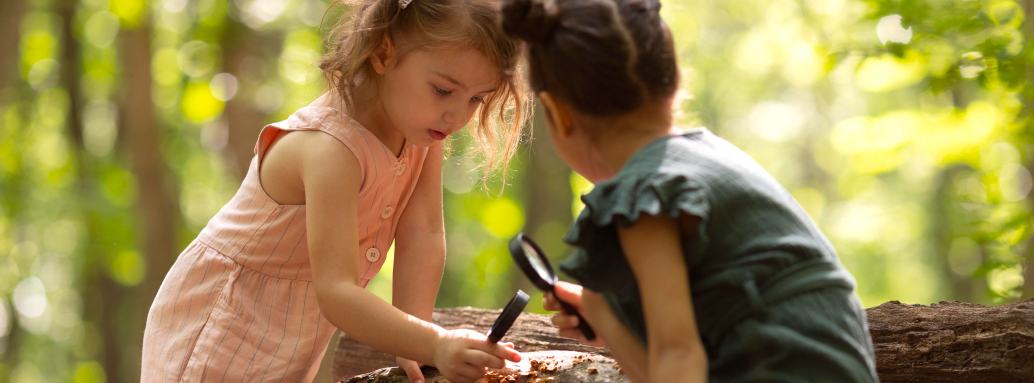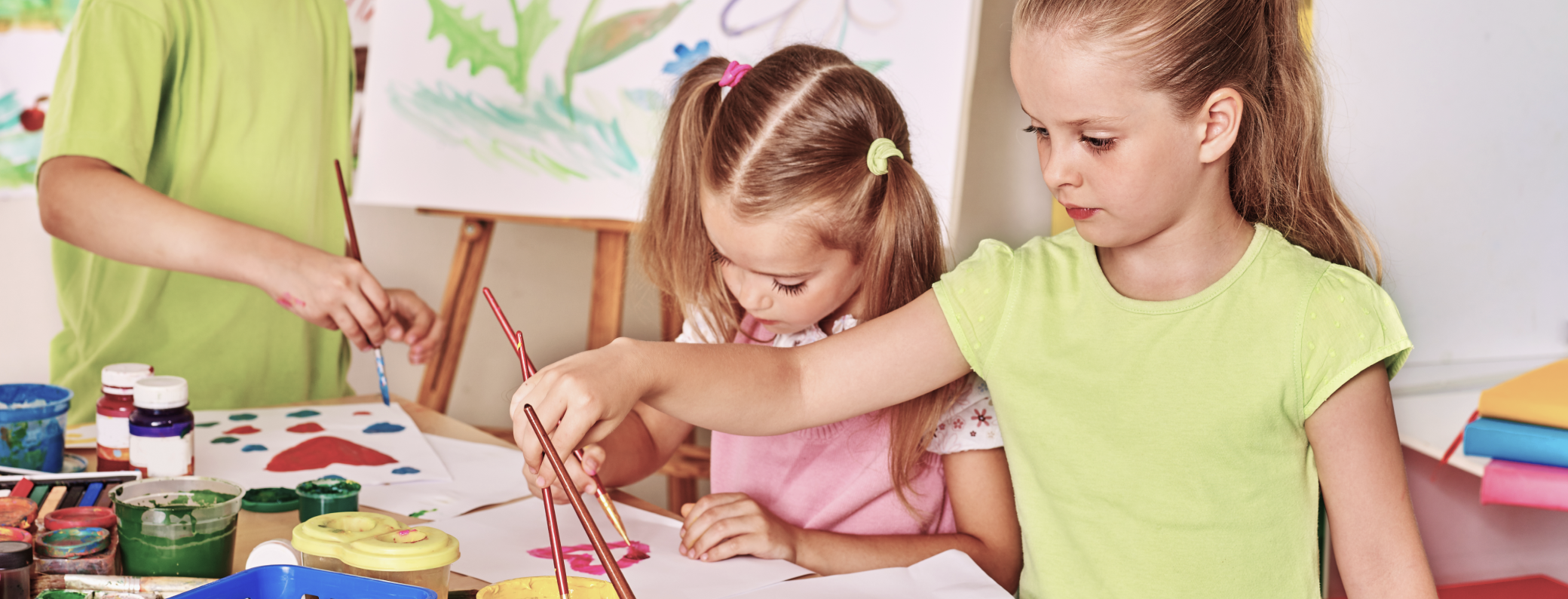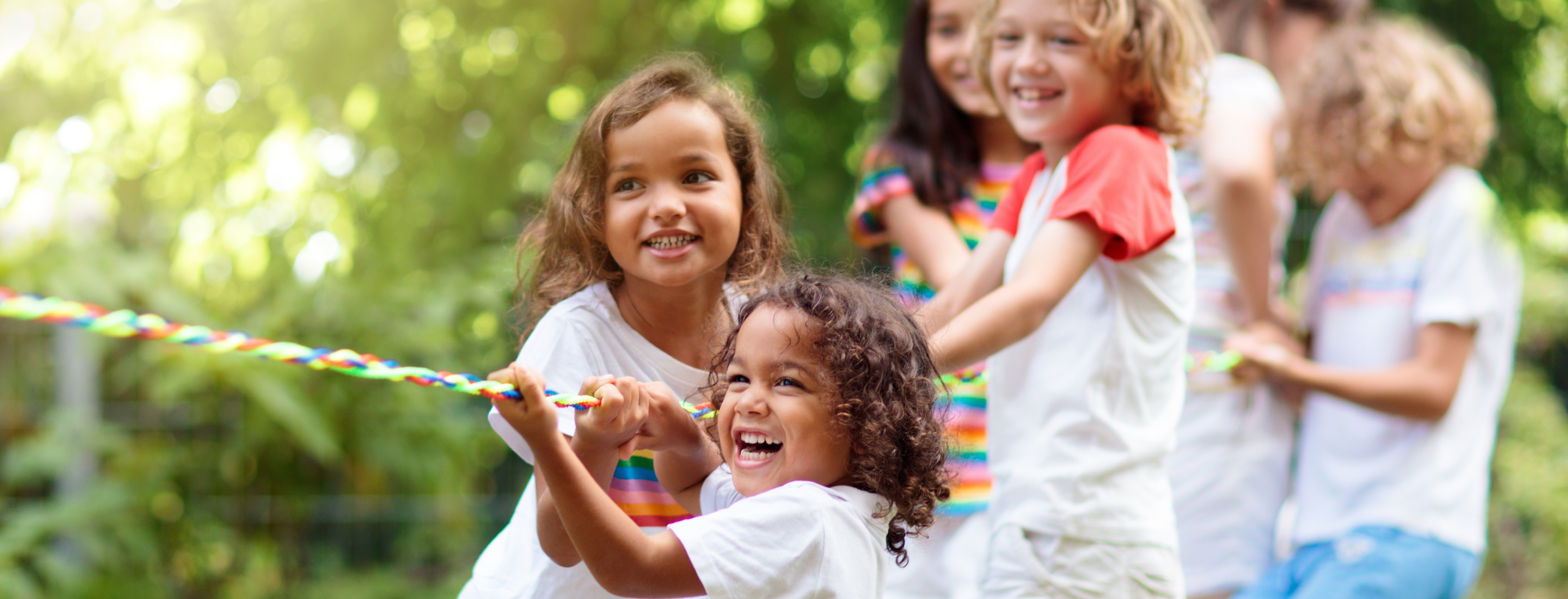In today's fast-paced digital world, many children are growing up with limited exposure to the natural environment. As an expert in early childhood education and development, I believe that nature-based learning offers a myriad of benefits for young children. In this article, we will explore why connecting children with nature is crucial, the advantages of nature-based learning, and how parents and educators can incorporate it into a child's daily routine.
Embracing the Great Outdoors in Early Childhood Education
Have you ever wondered how the great outdoors can impact a child's learning and development? In today's fast-paced, technology-driven world, it's easy to overlook the importance of nature in our daily lives, especially for young children. Let's delve into why nature-based learning is not just a breath of fresh air but a cornerstone in early childhood education.
Understanding Nature-Based Learning
What is Nature-Based Learning?
Nature-based learning involves using the natural environment as a context for education. It's about getting children outside and engaging with the world around them, fostering a sense of wonder and curiosity.
The Philosophy Behind Nature-Based Education
This approach is grounded in the belief that children are innate learners, and the natural world offers endless opportunities for discovery, creativity, and problem-solving.
The Disconnect from Nature
Modern children are increasingly disconnected from the natural world. With the rise of screens, video games, and structured indoor activities, many kids spend less time outdoors than ever before. This disconnect can have significant consequences for their physical, mental, and emotional well-being.
The Rise of Screen Time
In recent years, children's screen time has surged, leading to a sedentary lifestyle that is detrimental to their health. The allure of smartphones, tablets, and television often keeps them indoors, missing out on the benefits of outdoor play.
Nature-Deficit Disorder
Author Richard Louv coined the term "nature-deficit disorder" to describe the negative effects of limited exposure to nature in children. This disorder can lead to increased stress, anxiety, and decreased creativity in kids.
The Advantages of Nature-Based Learning
Nature-based learning, also known as outdoor education, offers a holistic approach to a child's development. Let's delve into the numerous advantages it provides.
Physical Health
Outdoor play is not just fun; it's fundamental for physical health. Children who play outside regularly have better motor skills, are more active, and have a lower risk of obesity.
-
Promotes Physical Activity: Nature-based learning encourages children to move, run, climb, and explore. This physical activity helps develop their motor skills and overall physical fitness.
-
Vitamin D and Fresh Air: Exposure to sunlight during outdoor play helps children produce vitamin D, which is essential for strong bones and a healthy immune system. Fresh air also improves respiratory health.
-
Reduced Risk of Obesity: Regular outdoor play can reduce the risk of childhood obesity by promoting an active lifestyle.
Cognitive Development
Did you know that nature can be your child's best teacher? Engaging with natural elements stimulates brain development, enhances concentration, and boosts cognitive abilities.
-
Enhanced Problem-Solving Skills: Nature presents children with unique challenges and puzzles, fostering problem-solving abilities and critical thinking.
-
Improved Concentration: Time spent in natural settings has been shown to improve concentration and attention span in children.
-
Experiential Learning: Nature provides endless opportunities for hands-on, experiential learning, making lessons more engaging and memorable.
Emotional and Social Development
Nature's serene setting offers a unique environment for emotional growth. It nurtures a child's ability to cope with stress and builds resilience and social skills as they learn to interact with others in a natural setting.
-
Stress Reduction: Nature has a calming effect on children, reducing stress and anxiety levels.
-
Enhanced Social Skills: Outdoor play encourages cooperation, teamwork, and the development of essential social skills.
-
Boosted Self-Esteem: Achieving tasks in a natural environment boosts children's self-esteem and self-confidence.
Environmental Awareness
Imagination thrives outdoors. The unstructured, open-ended nature of outdoor play encourages creative thinking and innovation. Early exposure to nature instills a deep appreciation and respect for the environment, cultivating future stewards of our planet.
-
Appreciation for Nature: Spending time outdoors fosters a deep appreciation for the environment, encouraging children to become responsible stewards of the Earth.
-
Connection to Ecosystems: Nature-based learning teaches children about ecosystems, biodiversity, and the interdependence of living organisms.
How to Incorporate Nature-Based Learning
Parents and educators can easily integrate nature-based learning into a child's daily routine.
Outdoor Play
-
Create a Nature-Friendly Yard: Transform your backyard into a nature-friendly space with plants, trees, and a designated play area.
-
Nature Walks: Take regular nature walks with children to explore local parks, trails, and natural areas.
-
Gardening: Involve children in gardening activities to teach them about plant growth and responsibility.
Nature-Based Activities
-
Scavenger Hunts: Organize scavenger hunts where children search for leaves, rocks, or specific wildlife.
-
Nature Art: Encourage kids to create art using materials found in nature, such as leaves, twigs, and flowers.
-
Outdoor Storytime: Host storytelling sessions in a natural setting to stimulate imagination.
Nature-Based Education
-
Outdoor Classes: Support schools that offer outdoor or nature-based education programs.
-
Nature Centers: Visit local nature centers or wildlife reserves for educational outings.
-
Books and Resources: Provide children with books and resources that focus on nature and environmental awareness.
Implementing Nature-Based Learning
Tips for Parents and Educators
How can you incorporate nature-based learning in your child's life? It's simpler than you might think! Start with regular visits to parks, encourage exploration, and integrate natural elements into play and learning activities.
Challenges and Solutions in Nature-Based Education
While the benefits are clear, challenges like safety concerns and lack of access to natural spaces can arise. Addressing these challenges requires careful planning and creative solutions.
Real-World Examples of Nature-Based Learning in Action
Success Stories from Around the Globe
From forest schools in Europe to outdoor classrooms in North America, examples abound of successful nature-based learning programs. These stories inspire and offer practical insights.
The Future of Nature-Based Learning
Trends and Predictions
As awareness grows, so does the integration of nature-based learning in mainstream education. What does the future hold? More green spaces in schools, perhaps, or increased outdoor learning opportunities.
Conclusion
Nature-based learning is not just a trend but a vital component of a child's holistic development. It promotes physical health, cognitive growth, emotional well-being, and environmental consciousness. As experts in early childhood education and development, we must advocate for more outdoor experiences and ensure that the benefits of connecting children with nature are widely recognized and embraced.
In conclusion, nature-based learning is a powerful tool in early childhood education. It offers numerous benefits that support a child's overall development and wellbeing. By embracing this approach, we prepare our children not just for academic success but for a lifelong journey of learning, discovery, and respect for the natural world.
FAQs
- Is nature-based learning suitable for all children, regardless of age? Absolutely! Nature-based learning can benefit children of all ages, from infants to teenagers. The activities and experiences can be tailored to suit different developmental stages.
- Can urban-dwelling children also benefit from nature-based learning? Yes, urban children can still experience nature-based learning by visiting local parks, gardens, and natural reserves. Even small green spaces can provide valuable outdoor experiences.
- Are there any safety concerns with outdoor play and nature-based learning? Safety is paramount. Parents and educators should always ensure a safe environment for children during outdoor activities, including proper supervision and appropriate safety measures.
- How can nature-based learning be integrated into formal education settings, such as schools? Many schools are incorporating nature-based learning into their curriculum by offering outdoor classes, nature-based field trips, and nature-focused projects. This integration enhances traditional education with hands-on, experiential learning.
- Are there any specific benefits of nature-based learning for children with special needs? Nature-based learning can be particularly beneficial for children with special needs. The natural environment provides sensory stimulation, calmness, and opportunities for inclusive activities that cater to individual needs.
- What age is best to start nature-based learning? Nature-based learning is beneficial at any age, but starting young harnesses the natural curiosity of children.
- Can urban settings accommodate nature-based learning? Absolutely! Urban settings can utilize parks, community gardens, and even small green spaces for nature-based activities.
- How does nature-based learning impact academic performance? Studies show that children engaged in nature-based learning often display enhanced concentration, creativity, and problem-solving skills, positively impacting their academic performance.
- Is nature-based learning safe for young children? With proper supervision and safety measures, nature-based learning is not only safe but also incredibly beneficial for children.
- How can I incorporate nature-based learning at home? Simple activities like gardening, nature walks, and outdoor crafts are great ways to start incorporating nature-based learning at home.
Billing, Invoicing Automation & Smart Finances
Communication & Engagement
Child Development & Progress
Waitlist, Forms & Attendance
Effortless Team Management
Daily Updates That Matter
Templates & Printables
Blogs
Webinars
Case Studies & Testimonials
FAQs
Help Center



